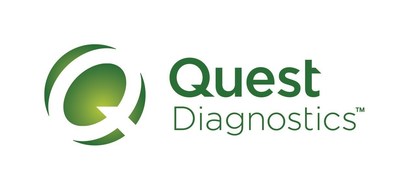Quest Diagnostics (NYSE: DGX), today announced the launch of a new obstetrics laboratory test panel designed to enable physicians to screen all eligible pregnant people easily and reliably for hepatitis C (HCV) with other laboratory tests typically ordered during early pregnancy.
|
New test panel follows a Quest Diagnostics Health Trends® study with the CDC that revealed less than half of pregnant people are screened for hepatitis C as recommended under guidelines SECAUCUS, N.J., Aug. 17, 2022 /PRNewswire/ -- Quest Diagnostics (NYSE: DGX), the world's leading provider of diagnostic information services, today announced the launch of a new obstetrics laboratory test panel designed to enable physicians to screen all eligible pregnant people easily and reliably for hepatitis C (HCV) with other laboratory tests typically ordered during early pregnancy. The company developed the new test panel to include HCV antibody testing with reflex to quantitative real-time PCR in response to findings from a Quest Diagnostics Health Trends® study published in Obstetrics & Gynecology in June 2022. This peer reviewed study found that less than 41% of pregnant people were screened for HCV in 2021, based on Quest Diagnostic's laboratory testing of more than 5 million pregnant patients. The study also found that individuals with Medicaid health insurance were screened at rates 25-35% lower than those with commercial insurance. "Our Health Trends research revealed that despite guidelines recommending HCV screening in pregnancy, many people are not receiving the testing they need. Individuals in underserved communities are most likely to experience this gap in care," said Damian "Pat" Alagia, MD, Senior Medical Director, Women's Health, Quest Diagnostics. "Screening for HIV, HBV and syphilis is already standard in obstetric panels, and it is no coincidence that screening rates for these diseases during pregnancy are more than double the current rate as for HCV. By adding HCV screening to our obstetrics panel, physicians will be more likely to deliver guideline-based care that reduces HCV infection during pregnancy and fosters a positive outcome for the patient and their newborn." "Our new test service is a prime example of how Quest Diagnostics illuminates care gaps from its uniquely large laboratory dataset and then creates solutions to improve patient care and public health," said Harvey W. Kaufman, MD, Senior Medical Director, Head of the Health Trends Research Program for Quest Diagnostics, and a lead of the study published in Obstetrics & Gynecology. Obstetric panels are typically performed early in pregnancy and include guideline-recommended tests, such as complete blood count (CBC), blood typing, hepatitis B, syphilis, and rubella, to help guide clinical decisions affecting the pregnancy and mother's health.i In recent years, hepatitis C infections have risen in pregnant people and other populations in the United States, largely due to increased intravenous drug use. Between 2020-2021, the United States Preventative Services Task Force, American College of Obstetricians and Gynecologists, and the Society of Maternal-Fetal Medicine issued practice guidance recommending one-time hepatitis C screening during pregnancyii,iii while the CDC issued guidance recommending HCV screening for all pregnant people except in settings where the prevalence of HCV infection is less than 0.1%.iv Hepatitis C is the most common bloodborne infection in the United States and is a leading cause of liver-related morbidity and mortality.v An estimated 1,700 infants were born with HCV infection (acquired in utero) each year between 2011 and 2014.vi About Quest Diagnostics Health Trends® About Quest Diagnostics i American College of Obstetricians and Gynecologists. Routine Tests During Pregnancy. https://www.acog.org/womens-health/faqs/routine-tests-during-pregnancy. Accessed July 26, 2022.
SOURCE Quest Diagnostics |
||
Company Codes: NYSE:DGX |





